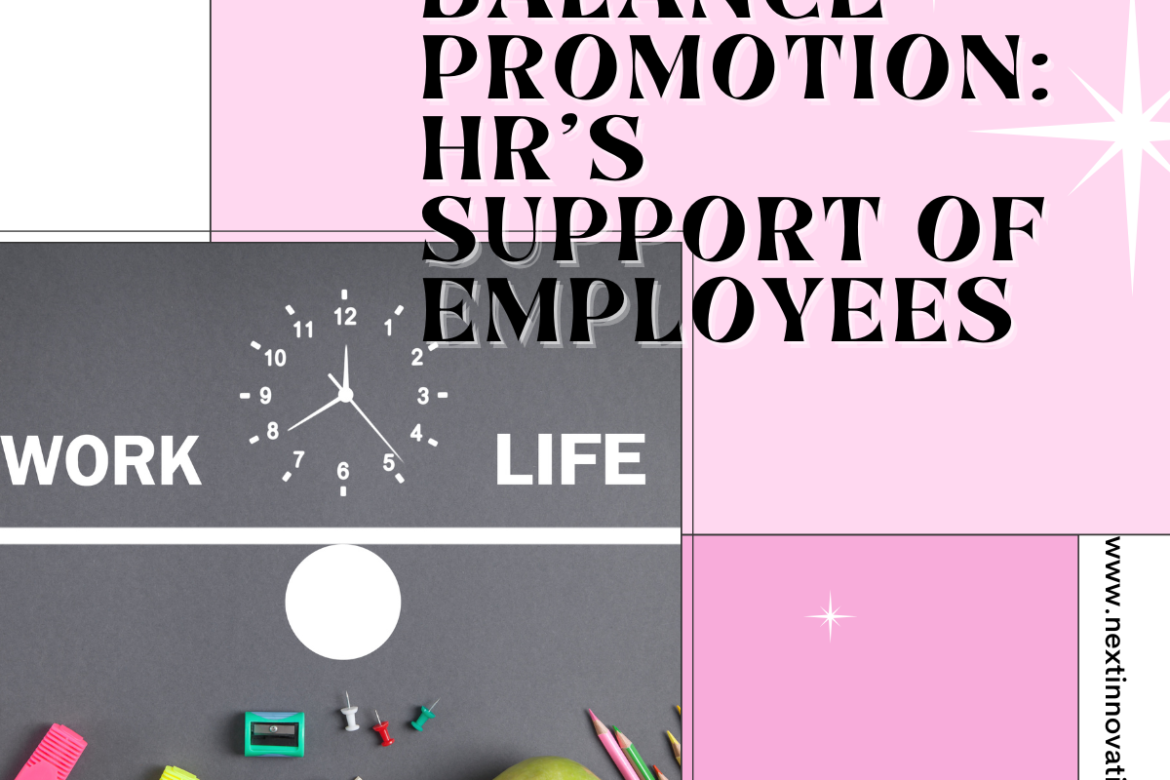Promoting work-life balance is crucial for creating a healthy and productive work environment. It is HR’s responsibility to support employees in achieving this balance. Here are some key roles HR can play in promoting work-life balance:
- Policy Development: HR can develop and implement policies that support work-life balance, such as flexible work schedules, telecommuting options, parental leave, and time-off policies. These policies should be communicated effectively to all employees.
- Education and Awareness: HR can raise awareness about the importance of work-life balance through workshops, training sessions, and company-wide communications. They can provide information and resources on stress management, time management, and self-care practices.
- Employee Assistance Programs (EAPs): HR can establish EAPs to provide confidential counseling and support services to employees facing personal or work-related challenges. These programs can offer assistance with mental health, financial well-being, and other stressors that can affect work-life balance.
- Flexible Work Arrangements: HR can facilitate flexible work arrangements, such as part-time work, job sharing, compressed workweeks, or remote work options. By accommodating individual needs, employees can better balance their personal and professional responsibilities.
- Clear Expectations and Goal Setting: HR can work with managers to ensure that expectations and goals are realistic and achievable. By setting clear performance expectations and providing regular feedback, HR can reduce employee stress and prevent burnout.
- Workload Management: HR can help managers distribute workloads effectively to avoid overwhelming employees. They can encourage proper delegation, establish prioritization strategies, and address work bottlenecks that can hinder work-life balance.
- Work-Life Balance Initiatives: HR can organize initiatives and events that promote work-life balance, such as wellness programs, fitness challenges, and social activities. These activities can help create a positive and supportive work culture.
- Manager Training: HR can provide training and resources to managers on how to support work-life balance for their team members. This includes coaching them on effective communication, setting boundaries, and recognizing signs of burnout.
- Regular Feedback and Surveys: HR can conduct regular employee surveys to gauge work-life balance satisfaction and identify areas of improvement. By actively seeking feedback, HR can make data-driven decisions to enhance work-life balance initiatives.
- Lead by Example: HR should lead by example and demonstrate work-life balance practices themselves. By encouraging senior leaders and managers to prioritize work-life balance, HR can create a culture that values and supports employee well-being.
Overall, HR plays a critical role in supporting employees’ work-life balance. By implementing policies, providing resources, and fostering a supportive work culture, HR can contribute to a healthier, happier, and more engaged workforce.

